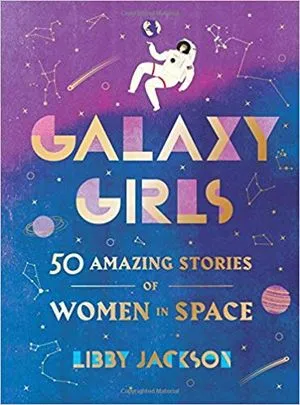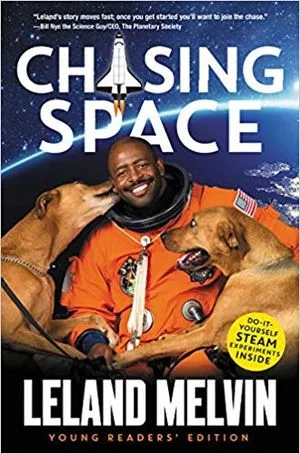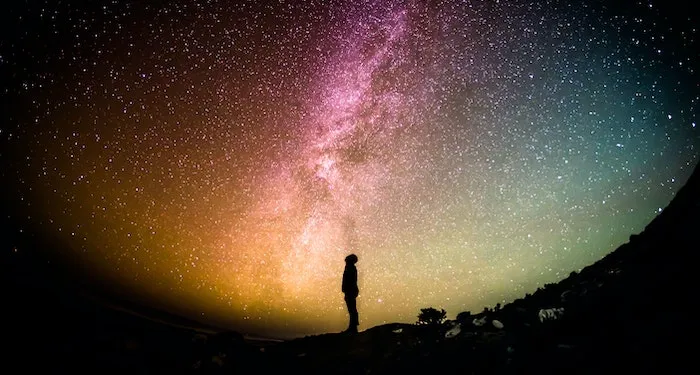
10 Space Books to Read so the Galactic Federation Will Talk to Us
You have to have seen the news, or at least the memes that resulted afterwards. If not, here’s the gist: the former head of Israel’s space security program came forward last week saying Israel and the United States had been in contact with the “Galactic Federation” but had been told to keep silent because the rest of humanity wasn’t ready yet. They signed contracts and everything. Yeah. 2020 is going out with a bang, y’all. I guess they didn’t want to wait until Zefram Cochrane came around. If that wasn’t already a little much, apparently Donald Trump also knew about this and managed to not blab about it once. Which is probably the most unbelievable part.
ANYWAY, according to the Galactic Federation humanity is almost ready to know about the existence of other life forms in the universe; we just need to learn more about space and spaceships. Which, granted, we may not know much about space beyond what we can see, but when you compare that to what we know about the ocean floor it’s not too shabby. We just want to be included, so what if we don’t have warp core technology yet. Either way, here are some books about space, from autobiography to space opera. Maybe if we read these the Galactic Federation will accept our application and stop judging us, even if we still use the bathroom and no longer have dodo birds. (If you don’t know what I’m talking about please watch this video.)
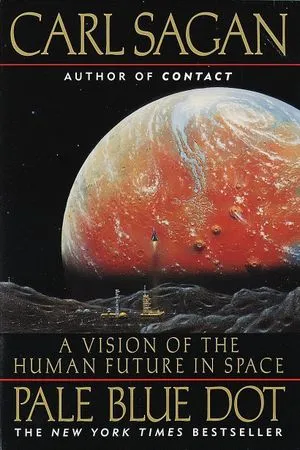
Pale Blue Dot: A Vision of the Human Future in Space by Carl Sagan
Carl Sagan is one of those high holy names in science education and astrophysics, up there with Bill Nye and Steve Irwin. Everyone knows something about the man, whether it’s from his TV show Cosmos or about his satellite Voyager. In his book Pale Blue Dot, Sagan covers the history of our travels in space and what our future in the final frontier might look like.
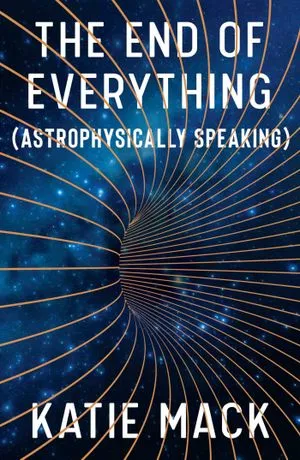
The End of Everything (Astrophysically Speaking) by Katie Mack
Everything has a beginning and and ending. We know how the universe began, starting with the Big Bang and expanding outward from there. But how will it end? It’s a thought that has crossed every one’s mind at least once. In The End of Everything, Dr. Katie Mack breaks down the ways the universe may meet its end: the Big Crunch, Heat Death, the Big Rip, Vacuum Decay, and the Bounce. And don’t worry, it’s written in an upbeat way that is easy for us non-astrophysicists.
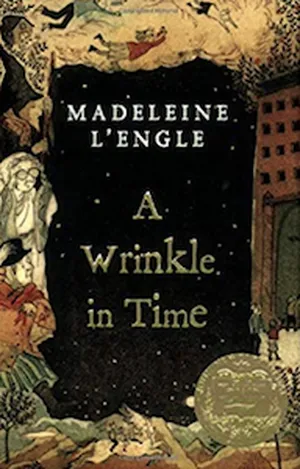
A Wrinkle in Time by Madeleine L’Engle
We’ve all read this one, or seen the movie, and maybe learned a little bit about dimensional travel. Sure, it’s fiction, but when it comes to theoretical physics it’s not too far off from the mark. Especially for being written in 1962. And what’s not to like about a girl learning to love herself and stand up for herself while saving her dad and little brother from a universal evil. It’s a classic book and a
Newberry Medal winner. You should read this one simply because you’ll enjoy it, but also it might impress some gigantic bureaucratic interplanetary group.
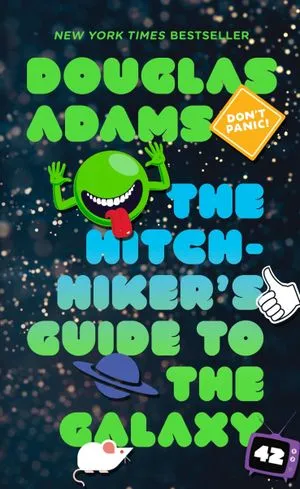
Hitchhiker’s Guide to the Galaxy by Douglas Adams
The Hitchhiker’s Guide to the Galaxy is another sci-fi classic that is just a delight to read. It’s a short read, mainly because it is incredibly difficult to put down once you pick it up. Douglas Adams is a master with words and the protagonist Arthur Dent is incredibly relatable. Sure, you may have seen the movie, but it’s nothing compared to reading the phrase “the ships hung in the sky much in the same way that bricks don’t.” Plus it’ll expose you to different (possible) alien societies! You’ll broaden your potential horizons.
Galaxy Girls: 50 Amazing Stories of Women in Space by Libby Jackson
Astronauts and astrophysics are often considered male-driven fields, but we wouldn’t be where we are now if it weren’t for the discoveries of women in the field. From Ada Lovelace, who laid the ground work for computer programming, to the Black women at NASA who are the reason we made it to the moon in the first place, this book contains 50 stories about the women who took space exploration from a dream to a reality.
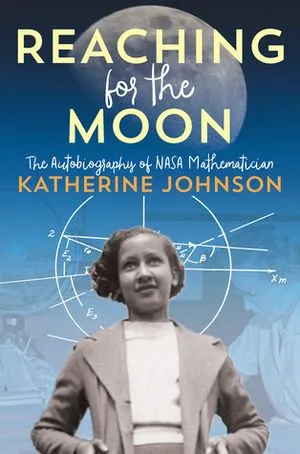
Reaching for the Moon by Katherine Johnson
If you’ve seen or read Hidden Figures, you know how important Katherine Johnson is. With Reaching for the Moon, you can get her side of the story, from skipping multiple grades due to her high aptitude for math to her calculating how to land on the moon. She also goes into the struggles she faced along the way, battling against brutal racism and sexism the entire way.
Chasing Space: An Astronaut’s Story of Grit, Grace, and Second Chances by Leland D. Melvin
We’ve all seen the picture of Leland Melvin in his suit with his dogs. It’s an incredibly wholesome picture. I had an astronomy teacher in high school that had a huge framed poster of that picture in her classroom (hi Mrs. Seng). But Leland Melvin was also a wide receiver in the NFL and almost didn’t make it into space due to an injury during his training with NASA. With Chasing Space, you can read about how community and determination helped not just him, but so many others fulfill a dream.
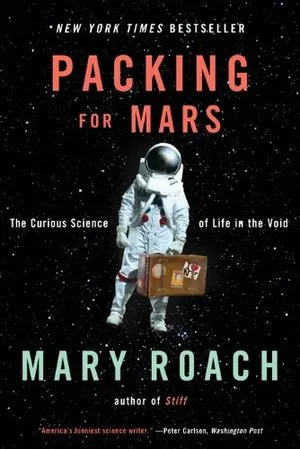
Packing for Mars by Mary Roach
If you want to read about some of the weirder sides of space travel and training, this is the one for you. You’ll learn about the Space Shuttle training toilet (yes, you heard that right) and how to eat food in zero gravity. Space travel is weird y’all, and in her classic style, Mary Roach will make you cry with laughter reading about what astronauts go through while in training and doing space walks. Don’t worry, there’s plenty of anecdotes, too.
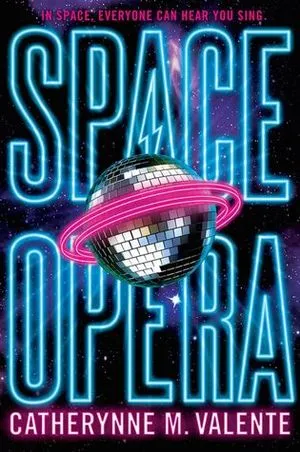
Space Opera by Catherynne M. Valente
Think Eurovision meets Star Trek: The Original Series. Instead of continuing an intergalactic war that would tear the universe apart, they compete in a gigantic singing competition. And if a new species wants to be considered as top tier, they have to compete. But if they fail? Well, then it’s curtains, baby. For the species. And humanity has just been invited to rock. Catherynne M. Valente is a delight to read, and this book proves it. And who knows, maybe there is an intergalactic singing competition we’ll have to compete in. Consider it practice.
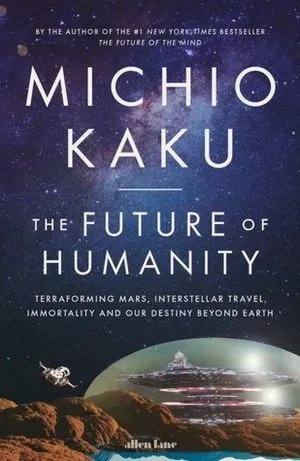
The Future of Humanity by Michio Kaku
Our world is greatly expanding, as is our universe. Technology is changing faster than a lot of us can keep up with. It really is only a matter of time before we find life elsewhere in the universe, maybe even within our own solar system. Dr. Michio Kaku knows this, and in The Future of Humanity, he lays out exactly how we may be able to go about colonization of neighboring planets. There’s a touch of science fiction involved with this, discussing warp cores and hyperspace, but once upon a time wireless phones were science fiction, as were nanny bots. But we have those now, who’s to say warp factor 5 is unreachable.
If you need more space books after this to really impress the Galactic Federation, here’s your fix for science fiction, astrophysics, and some Carl Sagan quotes to help the cosmos learn about itself.



